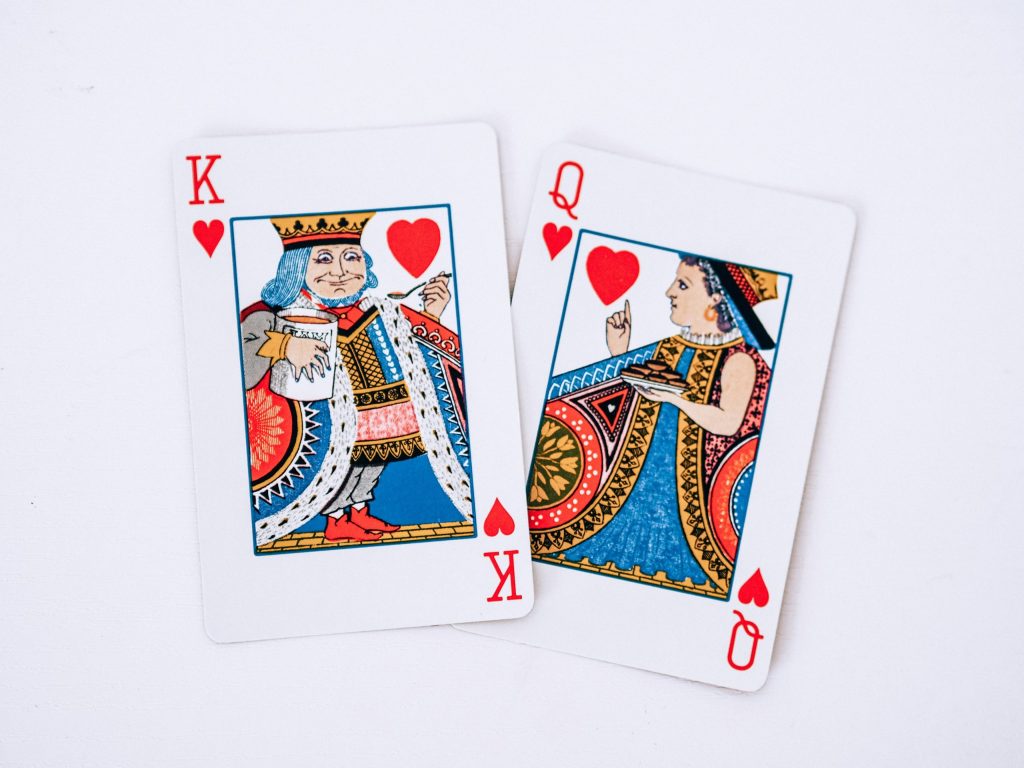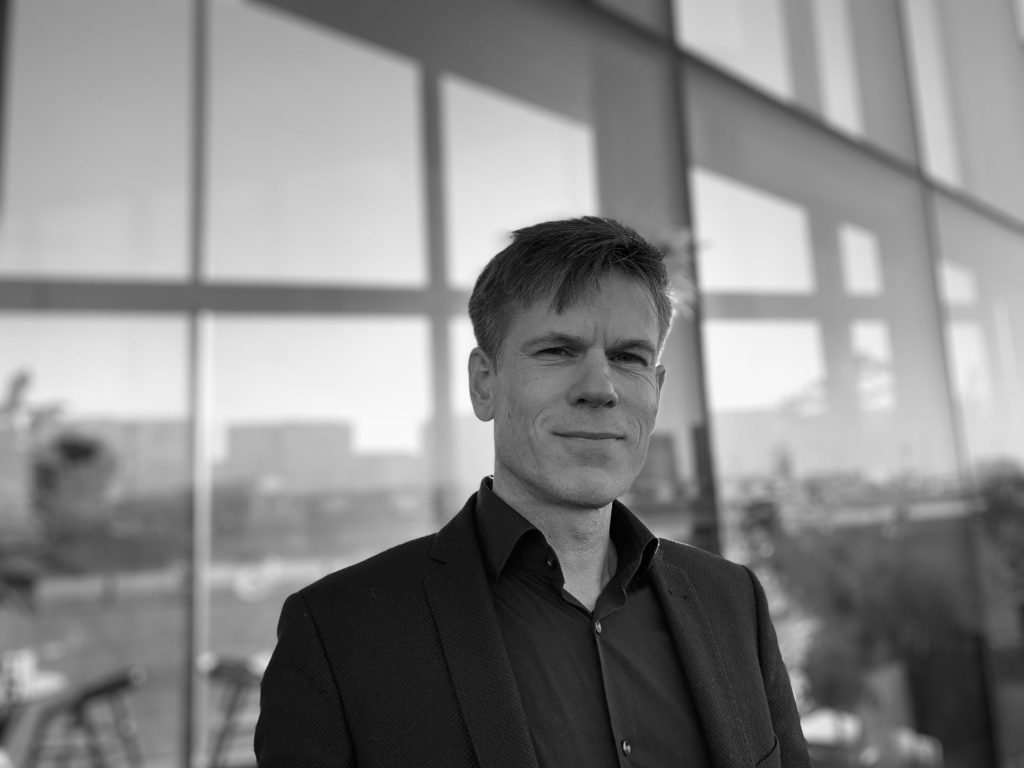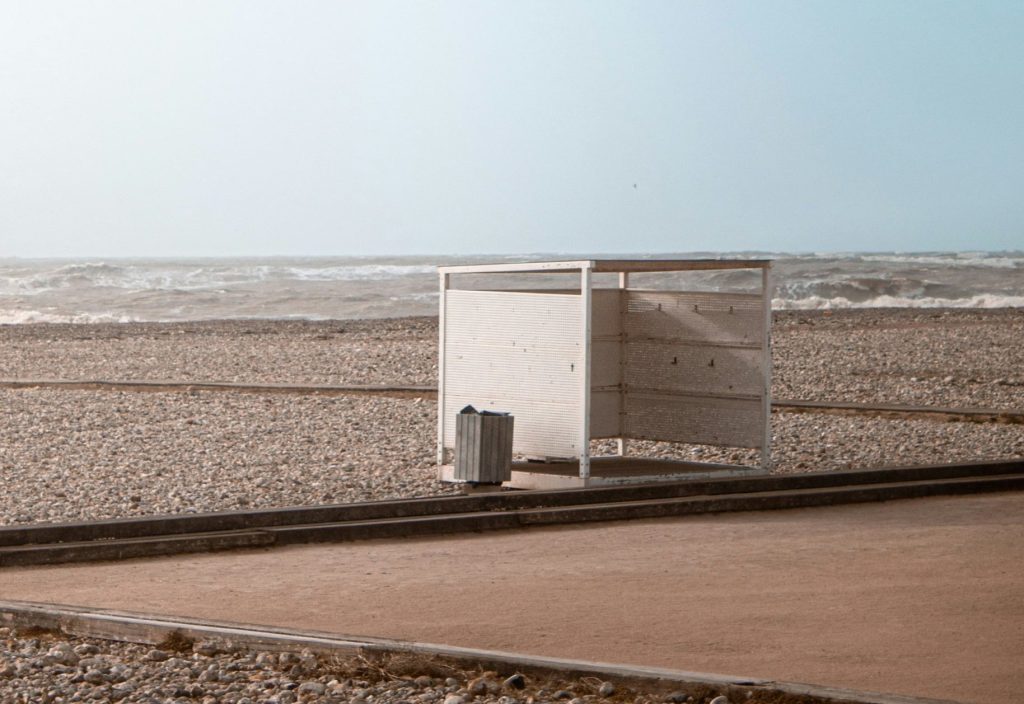“We could make a lot of money very quickly, but I first want to have a clear idea of the direction in which we’re growing, and what this means for us as a team.”
Dewi’s story about the origin of The Lekker Company sounds like some kind of start-up fairy tale: finding recipes for your cosmetic products on Pinterest, participating in a crucial Ahold pitch at the very last minute, and suddenly seeing your products on the shelves of more than 400 Albert Heijn stores throughout the Netherlands. But behind this seemingly simple story hides a well-thought-out vision and a clear love for sustainable business. Because that B-corp label sure didn’t earn itself. But then again, Dewi (32) is not your stereotypical young entrepreneur.
What did you do before you became self-employed?
“I mainly worked in marketing and did my graduation internship on corporate communication in London, where I had to type annual reports for Unilever. I honestly can’t think of anything more boring. I actually really wanted to do very creative marketing, such as guerrilla marketing for foundations. I thought it would be great to be like a commercial thinker for a foundation, where you can use your talent to do something useful for the world.”
So why did you start making cosmetics?
“I started eating vegan at the time, so I read a lot of labels to see if there weren’t any animal products in, for example, crisps and soup. What annoyed me was that I was in the dark in regard to cosmetics, because I often didn’t understand the labels on the packaging since they’re in INCI (International Nomenclature for Cosmetic Ingredients). At the time, you really had to google which brands were suitable for vegans. When you realise that offal is the norm as a cosmetics ingredient, and that a body cream completely dissolves in your body… There are so many people who exclude these ingredients from their food, for religious or ethical reasons. But what they don’t know is that they’re still consuming them through cosmetics.”
And so you thought: why not make my own?
“Exactly! I started by looking for cosmetic recipes on Pinterest, which I would literally copy at my kitchen table. This ranged from foot baths and lip balm to hair masks. Sometimes it really felt like I was baking cake, especially since one of the main ingredients in deodorant is baking soda. But I also adapted recipes and replaced ingredients that were not suitable for vegans.”
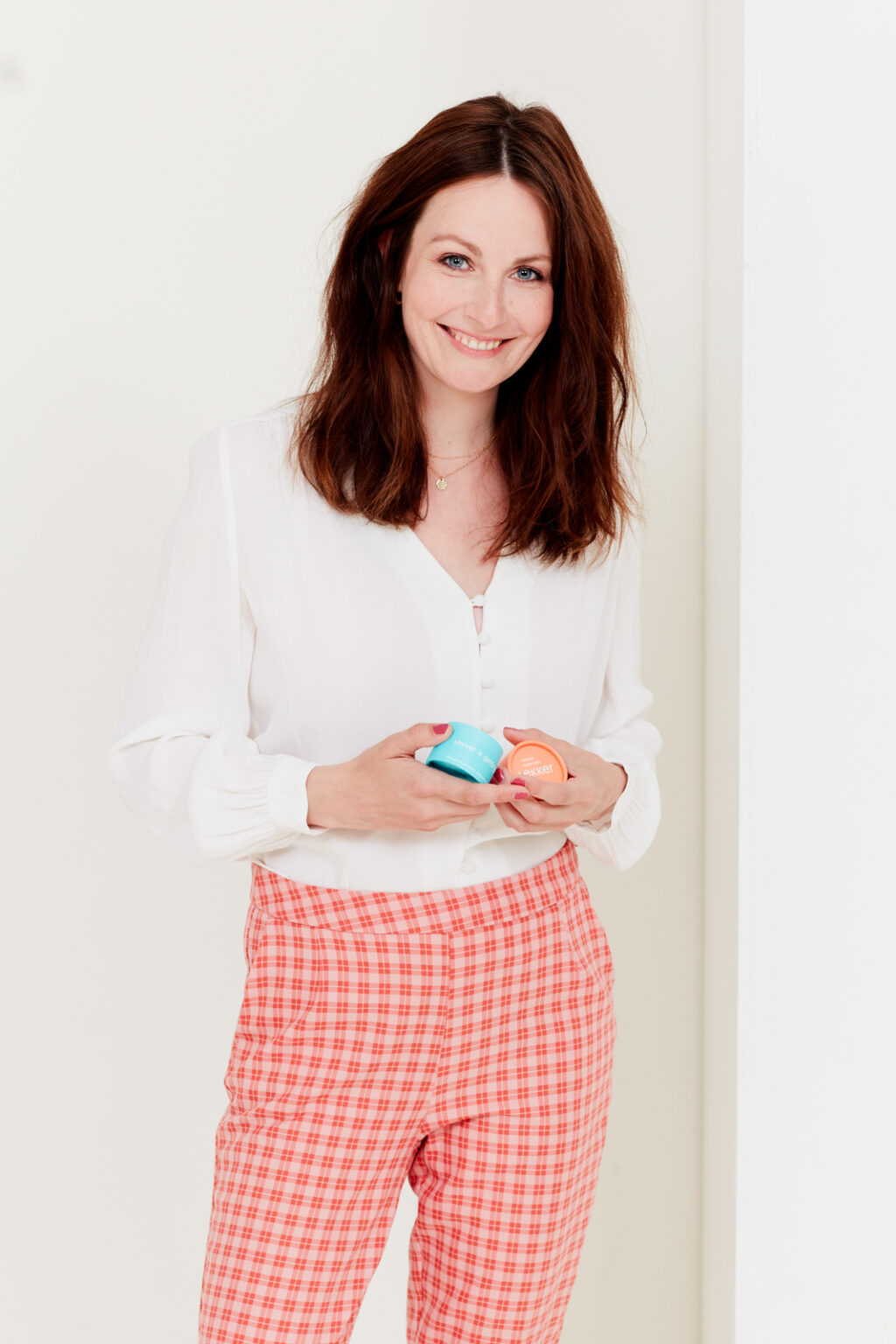
And how did you get the B-corp label?
“I definitely wanted everything to be 100% vegan and free of both plastic and palm oil. In addition, it was important to me to be transparent about what was in our products and to use clear descriptions for that. In fact, we even specifically select our ingredients with the intention of having people immediately understand them, like organic coconut oil or shea butter.
So in the end, I didn’t have to make a lot of changes to our core values to get the B-corp label, since most of the requirements were already embedded in our organisation.
For me, the label is currently mainly a great way to reflect, on where improvement is possible, for example.”
OK, so you’re still self-critical and aware of the direction the company is taking.
“Oh yes, I’m not here planning a swift exist. We could make a lot of money very quickly, but I first want to have a clear idea of the direction in which we’re growing, and what this means for us as a team. For me, the most important thing is that everyone is really excited about the launch of a new product. And the one question I always ask myself when making certain decisions is: what kind of company do we want to be? Everyone in our team currently works 4 days a week, and we want to able to just spontaneously decide to go to Efteling, for example.”
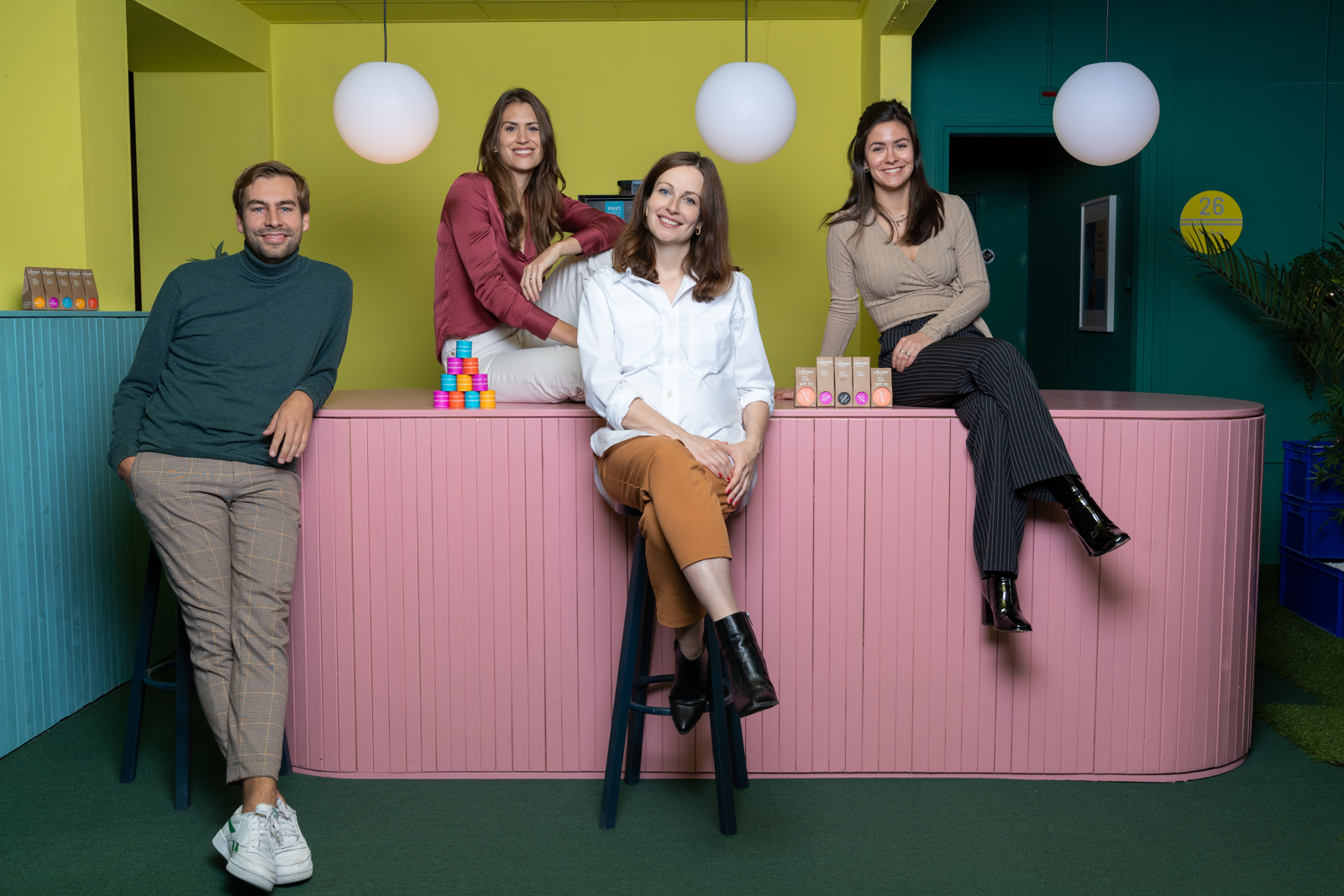
Sounds fun! So, what or who was your greatest inspiration in the field of sustainable entrepreneurship?
“Anita Roddick from The Bodyshop immediately comes to mind. When I read her book (Body & Soul) I almost got butterflies in my stomach: that’s how I wanted to run a business! Her company operates more as a foundation than as a cosmetics brand. It inspired me to start a foundation; 1% of our six-monthly turnover goes to charity. We choose a different cause every six months: earlier this year we were able to help four families out of extreme poverty with 100weeks. And currently we are planting trees with Trees for All. That way, I’m able to do a little bit more for the world.”
You now are extremely successful, you did a TEDx talk, you were in the top 100 of sustainable entrepreneurs, you have over 4000 sales points in the Netherlands, Germany, Poland and Denmark, and you work with a team of 7 people. How do you look back on the past years?
“I mainly just did most things myself and next to – or sometimes even during – an employment: from building my own website to taking to the street with my trolley full of glass jars. The pitch for Albert Heijn perhaps wasn’t even the highlight when I look back on it now. That was mainly frightening, like: how in the name of God am I going to arrange all this? But the moment the products hit the shelves was truly amazing of course. And I never thought I’d ever be able to hire staff at all. My end goal was to have my products in a 100 stores, so in retrospect I didn’t even have that high expectations.”
What has been your biggest lesson in those years?
“Don’t be afraid of the word no. I remember that I really wanted Dille & Kamille to sell my products, but I didn’t dare to call them because I thought: if they say no, I no longer have a silver lining and there will be no reason to go on as an entrepreneur. But a ‘no’ is often the beginning of something, and the ultimate opportunity to ask what would be a ‘yes’. Especially in regard to sales departments, because buyers change employers very often, so there are always new chances to convince someone.”
